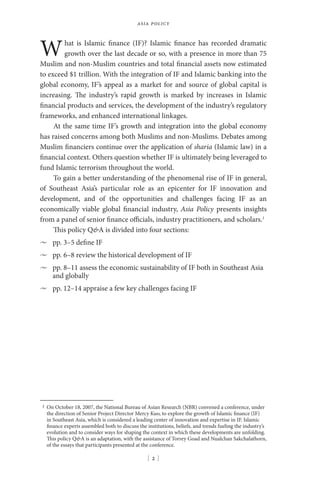Addressing Sharia Law Concerns: The Development Of An Islamic City In Texas

Table of Contents
Understanding Sharia Law and its Misconceptions
Defining Sharia Law:
Sharia Law, often misunderstood and misrepresented, is the religious law of Islam. It's derived from the Quran, the Sunnah (prophetic traditions), and scholarly interpretations. Crucially, there is no single, universally accepted interpretation of Sharia. Different schools of Islamic jurisprudence offer varying perspectives on its application, leading to diverse practices across the Muslim world. Common misconceptions often portray Sharia as uniformly harsh and incompatible with modern legal systems. This is a vast oversimplification.
- Family Law: Areas like marriage, divorce, and inheritance are governed by Sharia in many Muslim-majority countries, but these are often adapted to fit local legal frameworks.
- Criminal Law: Sharia-based criminal justice systems vary greatly in their application of punishments. Many modern interpretations emphasize restorative justice and rehabilitation.
- Personal Conduct: Aspects like dietary laws (Halal), prayer, and modesty are largely matters of personal faith and practice, not enforced by state-level legal systems in non-Islamic countries.
Misinterpretations of Sharia frequently fuel Islamophobia and hinder productive conversations about its role in diverse societies. Understanding its nuances is critical to fostering constructive dialogue. We need to move beyond the simplistic, often negative, portrayals of Islamic jurisprudence and religious law that dominate public discourse.
Sharia Law in the US Context:
The United States operates under a strict separation of church and state, as enshrined in the First Amendment. This constitutional framework guarantees religious freedom, allowing individuals to practice their faith freely, but it also strictly limits the enforcement of religious law by the state. Sharia, therefore, cannot supersede or contradict US federal or state laws.
- Numerous court cases have affirmed the principle of religious freedom while upholding the supremacy of US law. These precedents reinforce the understanding that religious practices must comply with existing legislation.
- The application of aspects of Sharia within the US is primarily limited to personal matters of faith and community practices, such as family disputes resolved through arbitration within the community, provided they adhere to the legal framework of the country. This adheres to the principle of religious freedom while upholding constitutional law.
The Proposed Islamic City in Texas: Development and Planning
Location and Infrastructure:
The establishment of an Islamic city in Texas presents considerable logistical challenges. Finding suitable locations requires careful consideration of land acquisition, zoning regulations, access to utilities (water, electricity, internet), and efficient transportation infrastructure.
- Potential locations need to be assessed based on factors such as proximity to major transportation hubs, availability of land suitable for development, and the presence of existing infrastructure. This planning process must align with Texas real estate laws and urban planning guidelines.
- The scale of the project, whether it involves building a new city from scratch or redeveloping an existing area, will greatly influence infrastructural requirements and the overall cost of the endeavor.
Community Governance and Legal Framework:
The governance structure of a proposed Islamic city in Texas would need to operate entirely within the existing legal framework of the state and federal government. This means full compliance with Texas state law and US constitutional law. Any internal community governance would need to be transparent and accountable.
- Community leaders would play vital roles in dispute resolution, fostering community cohesion, and ensuring adherence to local laws and regulations. These roles would need to be clearly defined and subject to the rule of law.
- Mechanisms for resolving internal disputes could include mediation, arbitration, or referral to state courts, depending on the nature of the conflict. Crucially, all processes must align with Texas law and constitutional principles.
Addressing Concerns Regarding Sharia Law and Community Integration
Public Perception and Media Representation:
Addressing public concerns and countering negative perceptions of Sharia Law is paramount. Misinformation and biased media portrayals often fuel anxieties and misunderstandings. Open communication and educational initiatives are essential.
- Promoting interfaith dialogue and community outreach programs can help foster understanding and dispel misconceptions about Islamic culture and practices. This requires active engagement with wider society.
- Media literacy initiatives that help people critically assess information and recognize bias are essential for countering harmful narratives around Sharia. Promoting responsible reporting is crucial.
Ensuring Religious Freedom and Protecting Minority Rights:
An Islamic city in Texas must champion religious freedom for all its residents, regardless of faith. Protecting the rights of minorities and ensuring inclusivity is non-negotiable.
- The community's governance structure should explicitly guarantee equal opportunities and protections for all citizens, regardless of their religious beliefs. This must be clearly stated and implemented.
- Mechanisms for addressing discrimination and protecting minority rights must be established and effectively enforced, adhering to principles of equality and non-discrimination set out in US and Texas law.
Conclusion: Addressing Sharia Law Concerns and the Future of an Islamic City in Texas
The development of an Islamic city in Texas presents both exciting opportunities and significant challenges. This article has highlighted the critical need to distinguish between Sharia law and US law, emphasizing that the latter holds supreme authority. Successful community planning must prioritize transparency, legal compliance, and addressing public concerns through open dialogue. Building a thriving Islamic community in Texas requires a nuanced understanding of Sharia Law within the context of American constitutional law. It necessitates fostering respectful dialogue, addressing misinformation, and ensuring inclusivity and religious tolerance for all residents. We encourage readers to engage in informed discussions about building a thriving Islamic community in Texas, focusing on a nuanced understanding of Sharia Law and its role within the US legal framework. Understanding the development of Islamic cities in the US requires collaborative efforts towards a future where diversity and religious freedom coexist harmoniously.

Featured Posts
-
 A Filmsztarok Gazsija Di Caprio Esete Es A Moziipart Sujto Problemak
May 13, 2025
A Filmsztarok Gazsija Di Caprio Esete Es A Moziipart Sujto Problemak
May 13, 2025 -
 Trumps Executive Order Impact On Prescription Drug Costs
May 13, 2025
Trumps Executive Order Impact On Prescription Drug Costs
May 13, 2025 -
 Neue Oberschule Braunschweig Bericht Zum Amokalarm Und Massnahmen
May 13, 2025
Neue Oberschule Braunschweig Bericht Zum Amokalarm Und Massnahmen
May 13, 2025 -
 Cassie And Alex Fine Photos From The Mob Land Premiere Red Carpet
May 13, 2025
Cassie And Alex Fine Photos From The Mob Land Premiere Red Carpet
May 13, 2025 -
 Cassie Confirms Third Childs Gender A Birthday Surprise For Alex Fine
May 13, 2025
Cassie Confirms Third Childs Gender A Birthday Surprise For Alex Fine
May 13, 2025
